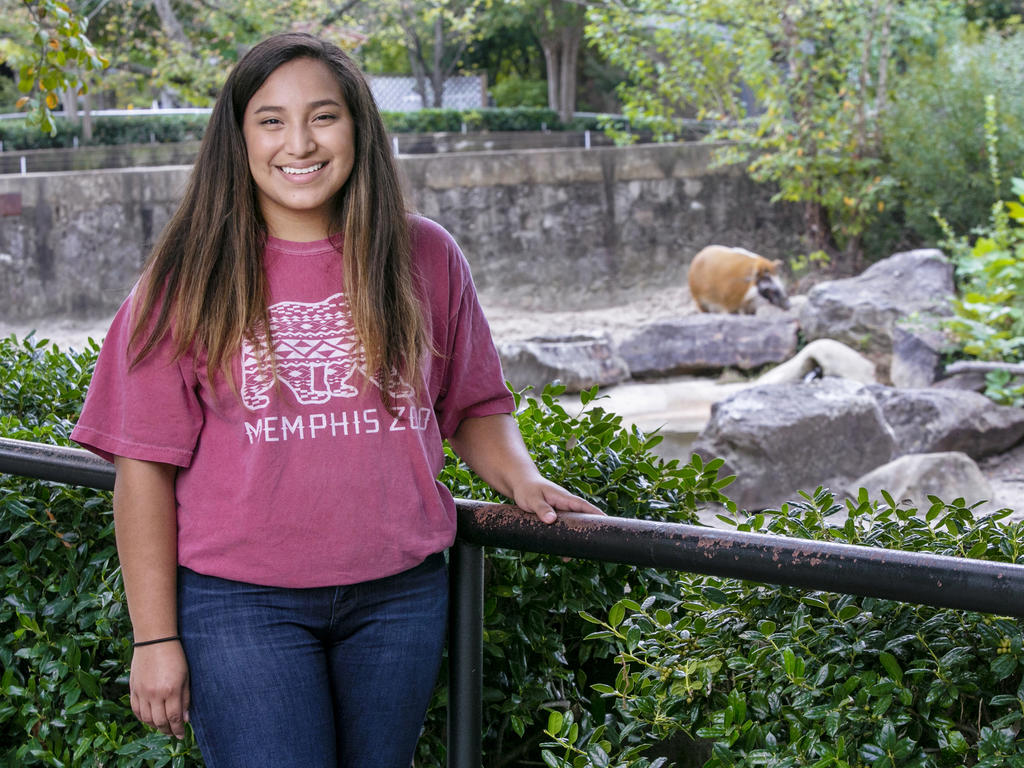Rhodes and the Memphis Zoo have been neighbors for more than 90 years, and the college’s faculty and students have worked with zoo staff on a number of scientific research projects focusing on animal behavior, animal care, conservation, ecology, nutrition, and reproductive physiology. Senior Erica Carcelén, who has a major in biology and environmental science, is one of those students who has greatly benefitted from the Rhodes/Memphis Zoo partnership.
She started as an intern the summer of 2015 after Dr. Sarah Boyle of the Department of Biology sent out a request for students interested in observing the interaction patterns of meerkats. As a result of applying for the Memphis Zoo internship, Carcelén also has acquired experience working with hippos, elephants, and rhinos as well as observing their behaviors as they adjust to new conditions and exhibits.
Then in the spring of 2016, when Boyle sent out another request for students to continue the Brown Bear Research Project started by Rhodes alumna Alyssa Tews ’16, Carcelén once again answered the call. She has been one of the students working on that project alongside Dr. Katrina Knott at the Memphis Zoo, performing hormone extractions for improved knowledge of reproductive and stress physiology. “These students gain hands on experience in laboratory techniques, quality control, data management, and data interpretation,” says Knott. “They also become an integral part of the lab as they help maintain laboratory equipment and engage in scientific discussions with members of the research staff.”
This semester, Carcelén added red river hogs to her already impressive list of scientific research. One of the female hogs recently gave birth to four piglets, and Carcelén was involved in helping to monitor their hormones. The goal of this type of research is to increase breeding success and offspring survival of the captive zoo population.
“We’re the third party to monitor the animals when the zookeepers can’t,” says Carcelén. “Having the Memphis Zoo literally across the street has been one of the best things about being here at Rhodes. That, and having professors here that we know are invested in us as well as researchers at the zoo who are willing to take the time for us to obtain new skills.”
Carcelén decided to broaden her horizons this past summer and jetted off to Costa Rica to monitor how temperature affects bats’ behavior as part of the National Science Foundation’s Research Experience for Undergraduates. After graduation, she hopes to attend graduate school and continue doing research in the field of animal behavior.
By Lizzie Choy ’17
